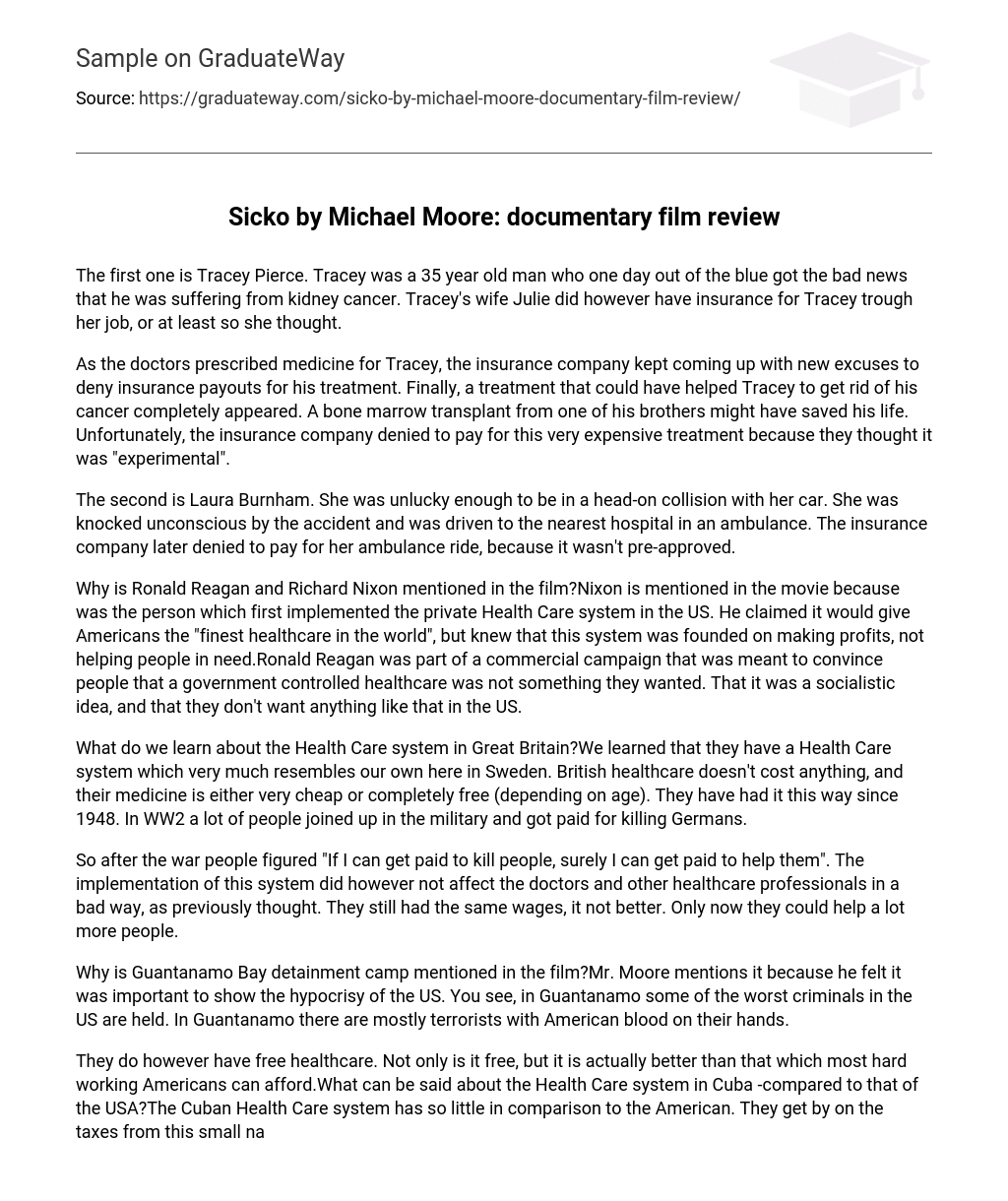Tracey Pierce, a 35-year-old man, received sudden and alarming news about his kidney cancer diagnosis. His wife, Julie, believed that Tracey had insurance coverage through her job.
Despite the doctors prescribing medication for Tracey, the insurance company continuously discovered fresh grounds to reject insurance payments for his treatment. Eventually, a potential remedy arose through a bone marrow transplant from one of his siblings, which held promise in curing his cancer. Regrettably, the insurance company declined to bear the expenses of this costly treatment, deeming it as “experimental”.
The second individual, Laura Burnham, was unfortunate enough to be involved in a head-on car collision. As a result, she lost consciousness and had to be immediately transported to the nearest hospital by an ambulance. However, the insurance company declined to cover the expenses of the ambulance as it was not pre-approved.
The film discusses the involvement of Ronald Reagan and Richard Nixon in the US healthcare system. Nixon implemented a private healthcare system, acknowledging its profit-driven nature over prioritizing those in need. Reagan campaigned against government-controlled healthcare, equating it with socialism and unsuitability for the US.
Both the healthcare systems in Great Britain and Sweden are similar. In Great Britain, healthcare is provided free of charge, and the cost of medication is affordable or even free, depending on one’s age. This system has been established since 1948 when many individuals joined the military during World War 2 and were compensated for their efforts against Germans.
After the war, it was clear that people could be rewarded for both causing and preventing deaths. Surprisingly, this new system did not harm doctors and healthcare workers as expected; their salaries stayed the same or even got better. The only change now was that they had more chances to help a much larger population.
Mr. Moore includes Guantanamo Bay detainment camp in the film to emphasize the hypocrisy of the US. He believes it is crucial to highlight that this camp houses some of the country’s most heinous criminals, primarily terrorists who are responsible for American casualties.
Although Cuba has free healthcare, its system is superior to that of the USA as it not only provides free care but also offers better quality than what many hardworking Americans can afford. Supported by taxes from a small nation, the Cuban healthcare system ensures a higher level of care and accessibility in comparison to the American system.
In Cuba, medical expenses are significantly lower than prices in the US and hospitals provide free treatment for as long as required. Consequently, when 9/11 rescue workers receive treatment in a Cuban hospital, their overwhelming reaction is tearful joy.
All of them have had to fight so hard for the few treatments and medications they have managed to access in America, and here in Cuba, just a couple of miles from American shores, you can obtain it all free of cost. Please describe the final scene in the movie! In the concluding scene, Michael Moore ascends the steps to the White House while carrying a basket of laundry. This serves as his way of expressing his determination to advocate for free healthcare in America too. Please, give your honest opinion about the film! I must confess, initially I presumed this would be just another mundane documentary, much like the ones we are assigned to watch at school.
However, this film provoked strong emotions in me and prompted deep contemplation about the American perspective on healthcare being free. None of the explanations I have generated seem rational. Additionally, it enlightened me to the luxury we enjoy in Sweden.
We never have to worry about these things, and it saddens me to think that others do. In order to articulate my thoughts effectively, I enjoyed this movie and would rate it 8/10.





